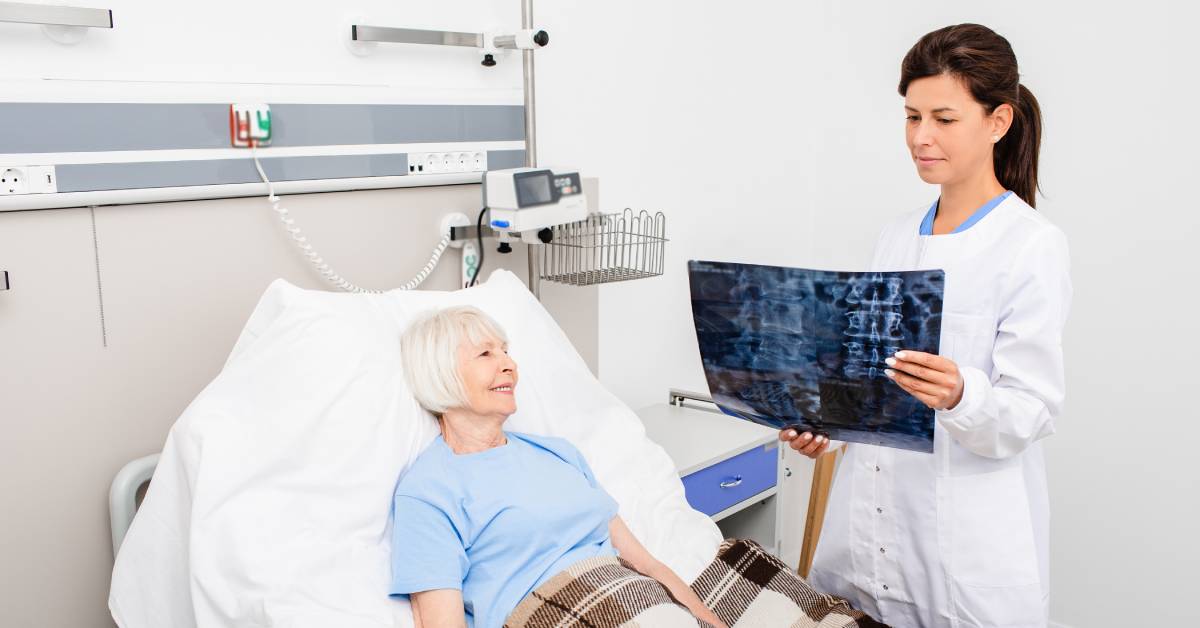Foam mattresses are useful for hospital beds because they enhance comfort and support for patients. Keeping patients comfortable and maintaining cleanliness are top priorities in healthcare settings. Learn more about the top advantages of foam mattresses for hospital beds and how they contribute to patient care.
Superior Comfort
Foam mattresses offer superior comfort by adapting to the patient’s body shape and providing a soft yet supportive surface. Contouring ensures that patients receive personalized comfort, which is especially beneficial for extended hospital stays. The adaptability of foam mattresses makes them ideal for patient care because they promote relaxation and rest for countless patients.
Additionally, foam mattresses can greatly improve the quality of a patient’s recovery. The material creates a welcoming and cozy environment, encouraging more restful sleep. Improved rest can significantly accelerate the healing process by enhancing the body’s ability to repair and regenerate tissues. Additionally, restful sleep bolsters the immune system, helping patients fight infections more effectively and contributing to quicker rehabilitation.
Great Durability
Foam mattresses are durable due to high-quality materials and advanced manufacturing techniques. The use of dense foam layers enhances the mattress’s resilience, allowing it to withstand frequent use without losing shape or comfort. This is crucial in hospital settings, where mattresses must accommodate diverse patient needs and perform consistently over time.
Durable foam mattresses can yield long-term cost savings for healthcare facilities. They reduce the frequency of replacements, cutting down on expenses related to procurement and disposal.

Excellent Support
Foam mattresses offer consistent support, maintaining spinal alignment and reducing discomfort for patients. This is crucial for preventing musculoskeletal issues, especially for people confined to their hospital beds for extended periods. By providing adequate support, foam mattresses keep patients comfortable and pain-free.
Spine and Joint Comfort
Foam mattresses benefit patients who are suffering from chronic back pain or those with orthopedic injuries. Consistent support maintains spinal alignment, which can alleviate pain and muscle tension. Furthermore, patients recovering from surgery or experiencing scoliosis can benefit from the continuous support provided by foam mattresses, as they relieve pressure on sensitive areas.
In addition to back-related concerns, foam mattresses are advantageous for patients with neurological conditions or severe arthritis, as they require steady positioning. The even distribution of support minimizes stress on joints and muscles, provides relief, and slows the progression of these conditions. Reinforcing the patient’s positioning can lead to improved comfort and a smoother recovery process.
Pressure Relief
One of the many advantages of foam mattresses for hospital beds is that they evenly distribute body weight and significantly reduce pressure on different parts of the body. Managing pressure distribution is key to preventing the development of bedsores.
Pressure-relieving mattresses can reduce the risk of the following complications associated with prolonged immobility:
- Development of pressure ulcers or bedsores.
- Muscle atrophy from lack of movement.
- Joint stiffness and decreased mobility.
- Circulatory problems, such as deep vein thrombosis.
- Respiratory issues, including pneumonia.
- Skin breakdown or infections due to prolonged pressure.
- Orthostatic hypotension from long periods of lying down.
The pressure-relieving properties of foam mattresses also support patients with existing conditions that require careful body positioning. These mattresses help to maintain skin integrity and reduce discomfort. As a result, they play a vital role in enhancing patient care and minimizing the potential health issues.
Motion Absorption
Foam mattresses have excellent motion absorption capabilities. This feature minimizes disturbances caused by the patient’s movements, which can decrease sleep interruptions.
Motion absorption also benefits patients sharing a room by reducing vibrations and noise from moving in their sleep. This creates a more peaceful environment conducive to healing and relaxation. Foam mattresses accomplish this through their layered construction and high-density materials, effectively dampening the transfer of motion across the bed’s surface.

Practical Protective Covers
Foam mattresses come with specialized covers that simplify cleaning and maintenance. These covers enhance the mattress’s longevity while helping to keep the patient’s room safe and comfortable.
Here are the possible benefits of covers for foam hospital mattresses:
- They are stain-resistant.
- They possess self-deodorizing properties, helping to maintain a fresh scent and reduce unpleasant odors.
- They are fluid-resistant, providing an effective barrier against spills and aiding in quick cleanup.
- They are non-allergenic and minimize the risk of allergic reactions among patients.
- They may have a low moisture transmission rate to keep patients dry, even when they are sweating.
The Importance of Easy Cleaning
Easy-to-clean mattresses are crucial in healthcare settings because they save valuable time for medical staff and contribute to a safe environment for patients. Sanitizing the bed cover reduces the risk of infections and cross-contamination. Covers for foam mattresses contribute to a safer and healthier atmosphere for both patients and healthcare professionals.
When a hospital mattress becomes visibly soiled or sustains damage, such as tears, punctures, or excessive wear, it can compromise the hygienic properties. A damaged mattress harbors bacteria or allergens, posing health risks to patients. Medical facility managers must replace dirty or compromised mattresses to maintain an uncontaminated and safe space for healing and recovery.
Compatibility With Adjustable Beds
Foam mattresses that are compatible with adjustable hospital beds keep their shape and provide essential support for various positions. This adaptability keeps patients securely positioned, significantly reducing the risk of them slipping or falling off the mattress. Additionally, the use of foam mattresses allows the adjustable bed to function correctly.
Adjustable hospital beds offer the following benefits:
- Enhanced patient comfort with customizable positioning.
- Easier access for caregivers during treatments and examinations.
- Improved circulation through elevation of the head or feet.
- Support for various medical conditions with specific posture requirements.
At Piedmont Medical, our hospital bed mattresses for sale come in diverse styles and sizes to fit different types of beds and stretchers, ensuring compatibility with existing hospital equipment. Healthcare facility owners and managers can also select firmness levels to accommodate various medical requirements.
Foam mattresses for hospital beds offer superior comfort, effective pressure relief, and excellent motion absorption. Their durability and compatibility with adjustable beds further enhance patient care by offering long-lasting support and safety. Additionally, protective covers make maintenance straightforward, promoting a hygienic environment in healthcare facilities. By integrating these features, foam mattresses contribute to improved patient comfort, faster recovery, and overall satisfaction in medical settings.


Recent Comments